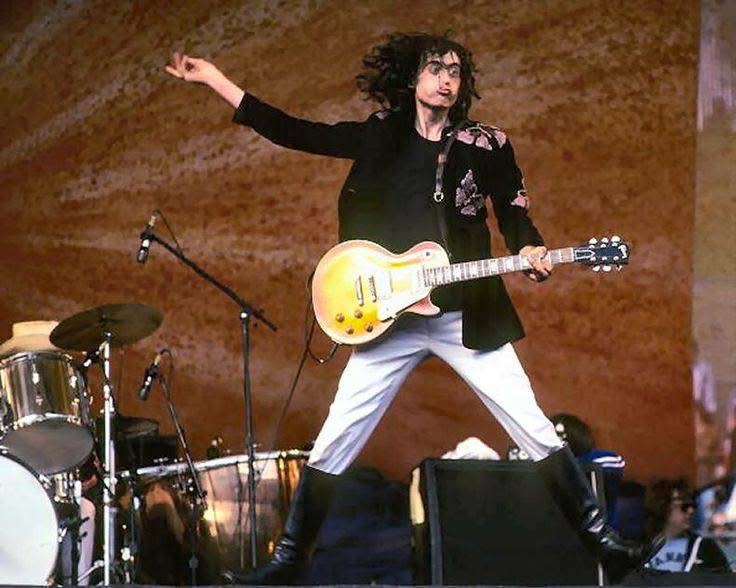Jimmy Page’s influence reaches far beyond his groundbreaking work with Led Zeppelin—he helped shape a cultural and artistic movement that defined a generation. In the late 1960s and ’70s, Page was more than a virtuoso guitarist; he was a visionary channeling the restless spirit of an era fueled by rebellion, exploration, and mysticism. His fascination with the occult, esoteric traditions, and arcane symbolism wasn’t just for shock value—it infused Led Zeppelin’s music with a deeper, mythic resonance that elevated them above their peers.
Page didn’t merely perform; he conjured. Whether bowing his guitar under a haze of strobe lights or wearing dragon-embroidered suits that made him look like a sorcerer on stage, his presence exuded theatrical power. He turned rock into ritual, blending blues roots with Eastern modalities and heavy distortion to create music that felt ancient and futuristic all at once. Each riff was a spell, each solo a vision. Through it all, Page remained the band’s elusive architect—crafting albums in shadowy studios, embedding cryptic symbols into liner notes, and carefully curating the band’s mystique.
This control wasn’t about ego but about artistic unity. He understood that the power of Led Zeppelin wasn’t just in the sound, but in the mythos. Page transformed the idea of the “guitar hero” into something more archetypal—a dark alchemist of rock and roll. His legacy is not only found in his legendary performances or enduring riffs, but in his role as a shaper of meaning and mood.
Today, Jimmy Page stands as a benchmark for creative autonomy, sonic exploration, and artistic integrity. Long after the final chord faded, his work continues to inspire. He reminds us that rock can still be a sacred force—when treated with imagination, intensity, and reverence.










